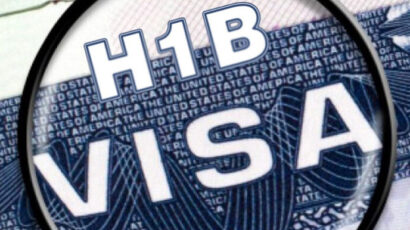Budget 2022: How NRIs benefit

The Indian budget presented by Finance Minister Nirmala Sitharaman has many proposals benefitting NRIs.
They include:
Simplified refund process on a wrongfully tax deducted at source
In one such change, the Budget 2022 has simplified and fastened the process of seeking a refund on a wrongfully tax deducted at source (TDS) on transactions with a non-resident Indian (NRI).
Certain payments made to NRIs require tax be deducted at source and submitted to the income tax department. For instance, rent paid on a property that is owned by an NRI requires that the tenant deduct 31.2% TDS on it and deposit it online with the tax department through Form 15CA. However, this is not applicable if the NRI landlord’s income from India falls below the exemption limit.
In a case where the tenant has deducted tax at source but the landlord furnishes a certificate that proves his income is below the exemption limit, the tenant will have to file an appeal under section 248 with a deputy commissioner or a commissioner to seek refund on TDS. Section 248 does not allow making an appeal to an assessing officer, which makes the process tedious and long.
Finance minister Nirmala Sitharaman simplified and fastened this process of seeking refund on a wrong TDS. An assessee can now make an appeal before the assessing officer, and will be required to approach deputy commissioner or commissioner only if he/she is not satisfied by the assessing officer’s order.
“It is proposed that a new section 239A may be inserted in the Act to provide that such a person, who has made the deduction of tax under such an agreement or arrangement and borne the tax liability, when no tax deduction was required, may file an application for refund of such tax deducted before the Assessing Officer,” as per memorandum to the Finance Bill. There are many other payments besides rent which attract TDS on transactions done with NRI.
This will take effect from 1 April. “Accordingly, the provisions of section 248 of the Act will not apply in cases where the date of tax payment, to the credit of Central Government is on or after 01.04.2022,” said the memorandum to the Finance Bill.
The Surcharge on capital gains is capped at 15%
NRI investors and overseas funds are likely to benefit from the decision to cap the surcharge at 15% on the tax payable on long-term gains from the capital assets-property, unlisted shares and artifacts.
The surcharge on long-term capital gains tax from equity funds and listed stocks is already capped at 15%. But for gains from other assets, the surcharge is based on the income slab of the taxpayer. It is 25% for incomes from Rs 2 crore to Rs 5 crore and 37% for incomes above Rs 5 crore. This pushed up the effective tax on the capital gains from these assets to as much as 25-27.4% compared to 11.5% payable on gains from equity funds and stocks.
The Budget also gives taxpayers the chance to correct mistakes made in reporting income while filing returns even as it clamps down on getting away with undisclosed income.
Other tax proposals
- Higher TDS for non-filers
Taxpayers who haven’t fi led returns for the previous assessment year will be subjected to higher TDS. 10-30% TDS is applicable on interest income from deposits, dividends, sale of property, NRI payments and rental income. It will be higher if returns have not been fi led. - Tax exemption for NRIs — Income of NRIs from offshore derivative instruments, royalty and interest on leasing ship, and portfolio management services based out of International Financial Services Centres or GIFT city will be exempt from tax. This exemption is subject to conditions, the finance minister said.
- Benefit for the disabled — For insurance policies bought by parents/guardians of disabled children, the payout can now be given to the dependant even if the parent is alive, if he is over 60 years. So the premium will qualify for deduction under Section 80DD even if the parent is alive and over 60. Earlier, the annuity/lump sum was paid only on the death of policyholder.















